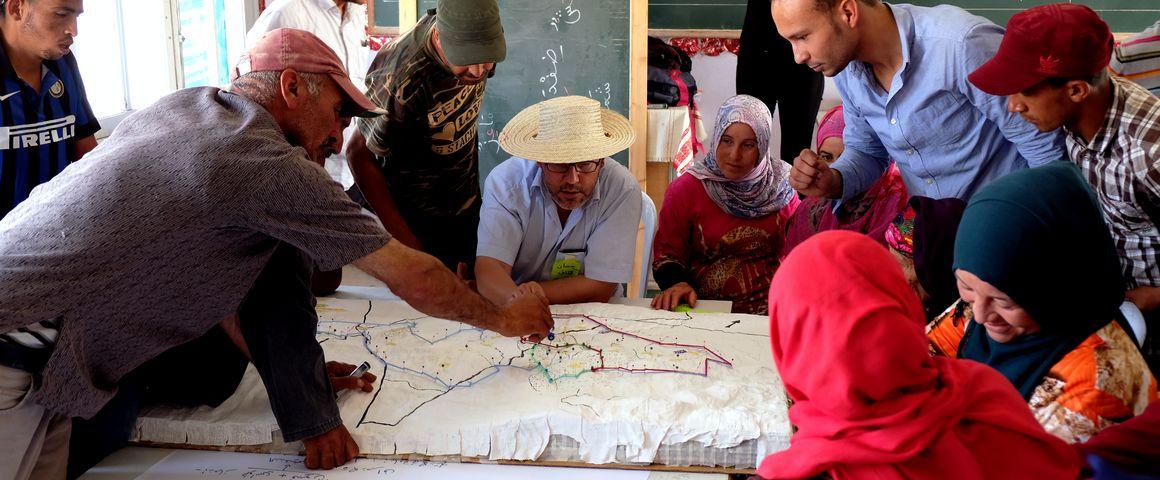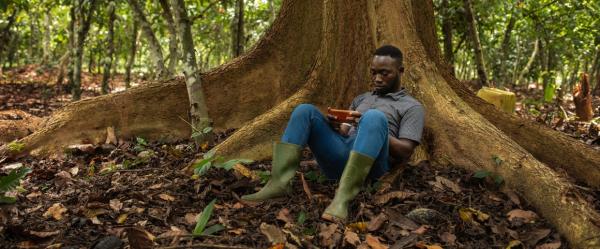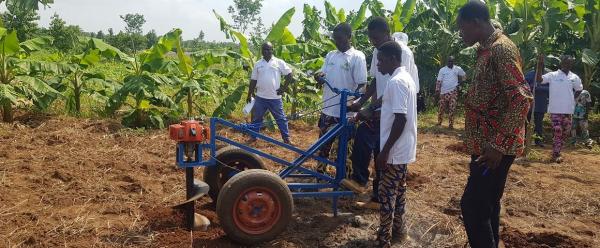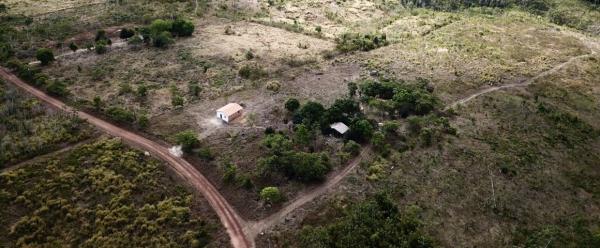Call to action 25 November 2025
- Home
- CIRAD news
- News
- Land and water: strengthening citizen participation
Land and water: strengthening citizen participation for less resource-intensive territories

The PACTE project involves 4000 participants working together to build the future of their territory and to increase their resilience to climate change (Tunisia) © PACTE
“Natural resources are being pushed to their productive limits”. The latest FAO report on the State of the World’s Land and Water Resources for Food and Agriculture (SOLAW 2021).
Published every 10 years, this reference document is itself based on several supplementary thematic reports, one of which was coordinated by CIRAD. This expert report, on institutional environments to improve livelihoods and ensure sustainable land and water use, is largely taken up in part 4 of the FAO report. It advocates participatory processes to improve land and water governance and to collectively design effective public policies.
The synthesis of the FAO SOLAW report was published in December 2021, and the full document and background thematic reports will be available shortly on the FAO website.
The importance of moving towards less resource-intensive agricultural models
“In recent decades, massive investments in agriculture and irrigation have clearly helped to reduce hunger and poverty”, says Caroline Lejars, assistant director of the G-EAU research unit and coordinator of the supplementary report. “But this success came at a twofold cost: growing and unprecedented use of land and water resources, and the development of widening inequalities”. This observation shows the crucial need to change our model of resource use to move towards a more agroecological system.
Strengthening citizen participation to improve land and water governance
The team of scientists highlight another issue: public policies are often designed “in silos” and struggle to take account of the growing diversity of farms. The team is proposing and producing research to strengthen citizen participation in decision-making processes and to establish interconnections between the local, regional and national levels.
The challenge of this participation is to take account of the expectations and constraints of the different territorial stakeholders in order to make decisions that are widely acceptable and environmentally sound.
This research thus aims to improve land and water governance methods and to facilitate the development of policies to support more inclusive, less resource-intensive models at the territorial level. To achieve this, participatory processes are generally co-designed and their impacts are assessed with the participants themselves.
Participatory approaches have been widely used in recent years, but are also sometimes instrumentalized or poorly assessed. If participation is only superficial or partial, it is likely to reproduce pre-existing forms of social exclusion, marginalization and corruption. We are convinced that these processes can be very powerful if they are effectively implemented and if their impact is properly assessed.
4000 participants to adapt rural Tunisia to climate change
The PACTE project (Programme of adaptation to climate change in vulnerable territories in Tunisia), for example, is testing a vast participatory mechanism for territorial development in rural Tunisia. It is based on platforms designed as collaborative networks involving a wide range of stakeholders (citizens, farmers, local officials, administrative officers, civil society and private sector stakeholders, scientists, etc.) in five of the country’s governorates.
Between 2019 and 2021, the PACTE project collected 12 000 proposals for action (including 3000 directly linked to drinking water and irrigation) over the course of around 100 public events organized with almost 4000 participants.
All of the participants are engaged in a public dialogue aimed at identifying priority challenges for territorial development, planning actions to be implemented in order to address these challenges, and monitoring and assessing the impact of these actions.
The goal is not only to enable the people living in a given territory to directly participate in its development, but also to facilitate citizen debates on the most appropriate solutions to collectively address development challenges.
From Brazil to New Caledonia
CIRAD is also supporting public policies in Brazil’s Nordeste region with a view to improving water management, agricultural production and energy efficiency. Through a territorial approach and widespread consultations with stakeholders in Ceará state, the Sertões project should enable the identification of low-carbon agricultural development pathways, in line with the agroecological transition.
Another specific example is the implementation of the first water policy in New Caledonia in March 2019. Known as the “Shared water policy” (PEP), this is the outcome of an extensive consultation supported by CIRAD, involving almost 1 in 600 New Caledonians.
Expertise in the engineering of participatory processes
These participatory processes help to mitigate the disconnect between policy decisions and realities on the ground. They are at the crossroads between participatory democracies, territorial projects, inclusive and multi-level governance systems, and bottom-up decision-making processes.
"The challenge of these approaches lies as much in their results (the policies and development plans produced) as in the process itself: through workshops and different exchanges, territorial stakeholders share their viewpoints, identify the issues that affect them all, discuss ways to work together and build collective actions. This experiment in Tunisia thus shows that large-scale local participation is possible, especially in a context characterized by few or no functional intermediate organizations, low digital penetration rates and high illiteracy rates. Our research focuses on the engineering of participation in such contexts, as well as on its effects”, says Emeline Hassenforder, a specialist in participatory approaches at CIRAD and contributor to the SOLAW report.
Several ways to drive success
“Our research has enabled us to identify a certain number of conditions for the success of these participatory approaches”, says the researcher. “First, facilitators need to be trained in territorial facilitation, including not only technical skills (participatory methods, distribution of speaking time, etc.) but also human skills (listening, empathy, etc.)”.
It is also important to use methods that enable territorial stakeholders to understand the complexity of their territory as well as the many interactions existing between the different stakeholders, resources and uses. Role-playing or participatory planning can be used to visualize, discuss and test the linkages between agriculture, food and energy, for example.
Moreover, the methods used in engineering participation need to be made transparent, or even discussed with the stakeholders themselves: who is invited to give their opinion, when and how, how opinions will be integrated into final decisions, and so on. These methods directly impact the legitimacy of the approach, and therefore its success.
Finally, the research also highlighted obstacles to the success of these approaches, for example when policies do not take account of citizens’ viewpoints, or when the participatory approach is not sufficiently adapted to the context (giving rise to power struggles or the exclusion of certain participants).



























